
 |
|
|
Vegetables
Volume 62 Number 19 Date 11/09/2017 LATE BLIGHT - The state's first case of late blight in 2017 was confirmed by the UW Plant Pathology Department on Waukesha County tomatoes on July 26. Additional cases of the disease were identified in August and September in 12 counties: Columbia, Clark, Crawford, Dane, Iowa, Jefferson, Kenosha, Pierce, Polk, Portage, St. Croix and Waushara. Compared to 2016 when only four counties had confirmed reports, late blight was more prevalent and widely distributed in Wisconsin this season. Characterization of the pathogen strains found that US-23 was the most common genotype, detected in nine counties, while US-8 was identified from six counties. Nearly all late blight that developed in the U.S. this year was the US-23 genotype, which is more virulent on tomato than potato and a primary reason why late blight has recently become a more severe disease of tomato. FALL ARMYWORM - Monitoring traps located near Janesville in Rock County detected a large, late-season flight from September 27-October 4. A total of 757 moths were captured in the pheromone trap during that period and 244 moths were collected in the black light trap. Fall armyworm larvae can cause severe kernel injury on both the tip and sides of corn ears, although significant damage is usually limited to years when the moths arrive early and in high numbers. The autumn flight occurred too late to produce a distinct generation of larvae. SQUASH BUG - This cucurbit pest was a common problem in home gardens and commercial vine crops. Two reports of injury to transplants caused by overwintered adults were received in June, and the nymphs were abundant enough in some plantings in July to damage flowering squash. Large numbers continued to be observed through October after the vines had died. -- Krista Hamilton, DATCP Entomologist POTATO SPINDLE TUBER VIROID - Thirteen varieties of peppers for seed production were tested for pospiviroids this year. All were determined to be virus-free. This group of viroids includes potato spindle tuber viroid, a pest of concern for exporters of solanaceous crops such as potato, eggplant and tomato, which is not known to occur in Wisconsin. -- Anette Phibbs, DATCP Plant Pathologist 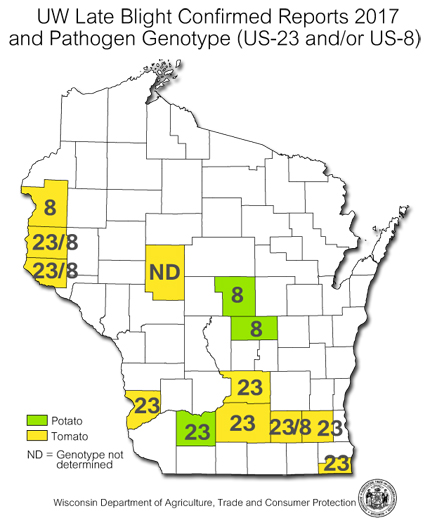
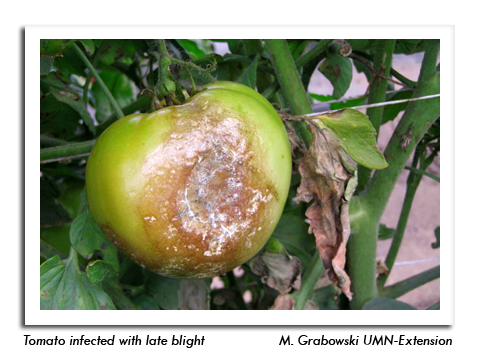
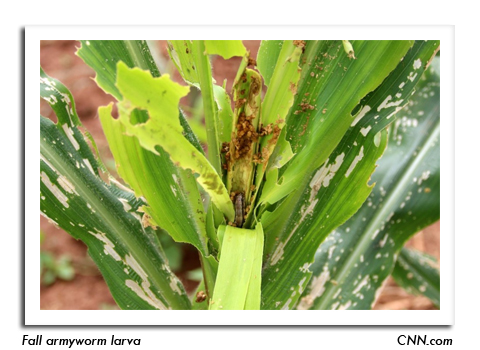
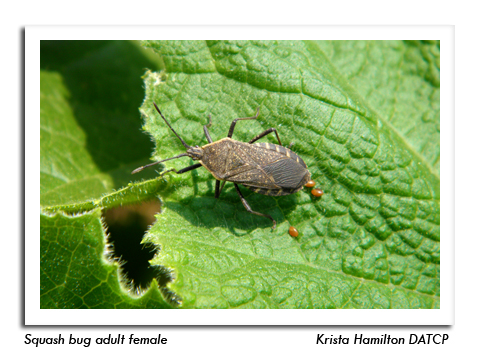
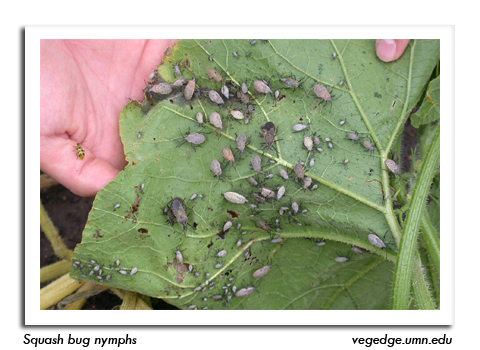
|
|
|